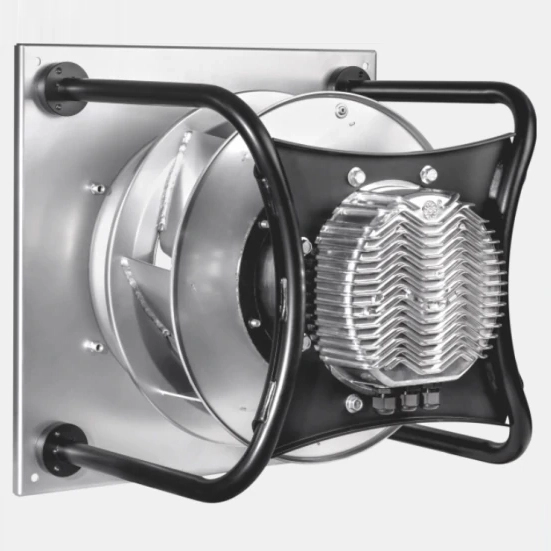The design of the impeller in a plug-in wall exhaust fan plays a crucial role in determining its performance.
Here’s how the impeller design influences various aspects of the fan’s performance:
- Airflow Efficiency: The impeller design directly affects the fan’s ability to move air efficiently. An optimized impeller design, with well-positioned blades and an appropriate blade profile, ensures smooth and effective airflow through the fan, maximizing ventilation performance.
- Pressure Generation: The shape and configuration of the impeller blades determine the fan’s ability to generate pressure against system resistance, such as ductwork, filters, and grilles. A well-designed impeller generates sufficient static pressure to overcome resistance and maintain airflow, ensuring proper ventilation in the intended space.
- Noise Generation: The impeller design can impact the noise levels produced by the fan during operation. Turbulent airflow around poorly designed impeller blades can result in increased noise due to air vortices and blade passing frequencies. A carefully engineered impeller with optimized blade geometry minimizes turbulence and reduces noise generation, resulting in quieter operation.
- Energy Efficiency: The efficiency of the impeller design influences the energy consumption of the fan. An efficient impeller design minimizes energy losses due to aerodynamic inefficiencies, allowing the fan to achieve higher airflow rates with lower power consumption.
- Durability and Reliability: The structural integrity of the impeller design affects the fan’s durability and reliability over time. plug in wall exhaust fan A robust impeller construction, made from durable materials and designed to withstand mechanical stresses, ensures long-term performance and reduces the likelihood of premature failure.
- Maintenance Requirements: The impeller design can also impact the fan’s maintenance requirements. A well-designed impeller minimizes the accumulation of debris and dust, reducing the frequency and complexity of maintenance tasks such as cleaning and inspection.
Overall, the design of the impeller in a plug-in wall exhaust fan significantly influences its airflow efficiency, pressure generation, noise levels, energy efficiency, durability, reliability, and maintenance requirements. A carefully engineered impeller design is essential for ensuring optimal performance and longevity of the fan in various ventilation applications.
